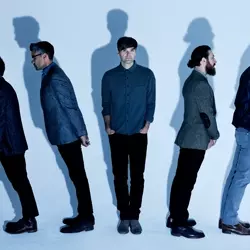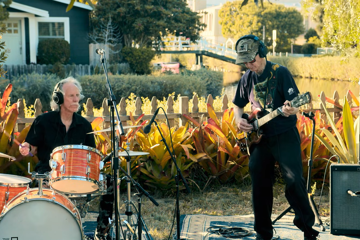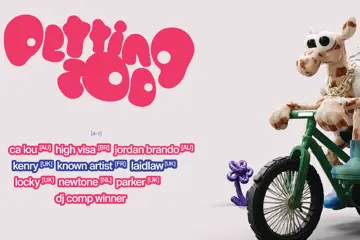 Death Cab For Cutie
Death Cab For CutieSeattle alt-indie icons Death Cab For Cutie have had a pretty incredible run over the last decade. Having gently transitioned from the indie world to the major label realms with 2005’s Plans, they were eventually rewarded with a #1 US album (2008’s Narrow Stairs), a #1 track on Billboard’s Adult Alternative Song chart (You Are A Tourist from 2011’s Codes And Keys) plus numerous awards and even seven Grammy nominations.
But things weren’t entirely rosy behind the curtain. When midway through the recording of their eight album Kintsugi founding guitarist Chris Walla – who’d also produced the band’s first seven albums – announced that this album would be his swansong, the outside world reacted with shock but his bandmates had long ago seen the writing on the wall.
“It was news that we didn’t expect to get when [Chris] delivered it,” recalls bassist Nick Harmer. “We were about halfway through the album when he pulled us aside and said, ‘This is going to be my last album’ – but it was news that the three of us had been expecting from him off and on for a number of years. He’s always had two directions in his life that are really interesting to him – one is being a guitar player in this band, and the other side was being a record producer and working in the studio that he owned and operated in Seattle.
“So we always knew that he was being pulled in two different directions, and it might sound a little cheesy to say that it wasn’t a question of ‘if’ but a question of ‘when’, but it really did feel that way. We always assumed that at some point he was going to transition into that part of his life, so when he told us the news we had to perhaps figure out what to do and how to move forward just in the short term, but in the larger sense it was a big sense of relief, like, ‘Ok, now we finally have an answer and can make longer term plans accordingly.’”
Harmer concedes that it was a vastly different experience working with an outside producer on Kintsugi after so many years of keeping things in-house.
Don't miss a beat with our FREE daily newsletter
“It has its own benefits and own challenges for sure having your bandmate and tour-mate in the studio calling the shots – we had to remind ourselves to let [Walla] be in charge at times,” he reflects. “With Rich [Costey] this time it was really refreshing going into the studio when there was no push and pull around who had the final word – he was definitely the captain, so to speak, and everything had to pass his level and his standards of what he was wanting to hear and what he was encouraging us to do and all of it. That really forced a lot of the way that we’d worked in the past – which over time had almost become subconscious understandings between each other – out into the light again, and made us reexamine the way that we communicate, the way that we work and the decisions that we have grown accustomed to.”
Harmer explains that recent changes aside, the remaining Death Cab For Cutie members – now down to frontman and creative lynchpin Ben Gibbard and drummer Jason McGerr – haven’t felt any additional creative pressure following their unmitigated successes of recent times.
“I couldn’t speak for everyone in the band, but I would tend to think that generally it removes a lot of pressure,” he offers. “The longer we get to do this the more grateful and thankful we are that we get the chance. We’ve always been fairly grounded and humble guys on and off stage, and I feel like the success we’ve had is something that none of us ever expected in the beginning, and wasn’t something that we put pressure on ourselves to achieve when we started the band. So as success has come our way we’ve just been able to enjoy it for what it is and then keep looking forward to what the next song is going to be, what the next album is going to be, where the next show is going to be. We sort of think a lot in the present tense in this band – we’ve never been a band that makes a lot of real long future goals and hold ourselves to lofty standards of things that people might consider markers of success.
“I think with time there just comes a little bit of confidence and a little bit of self-assuredness about the decisions that we make, and if anything the pressure that we feel is about not wanting to tarnish any of that and be a band that people are still proud to listen to and enjoy and can look back at our entire career and feel that we never betrayed anything that they might have expected from us.”















